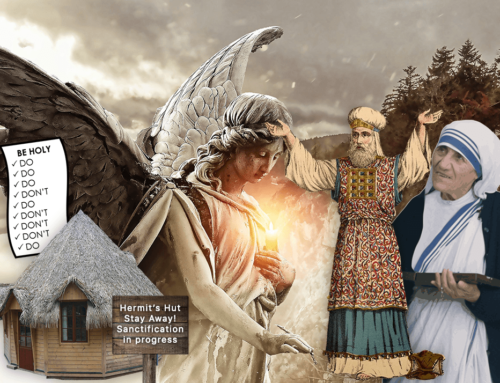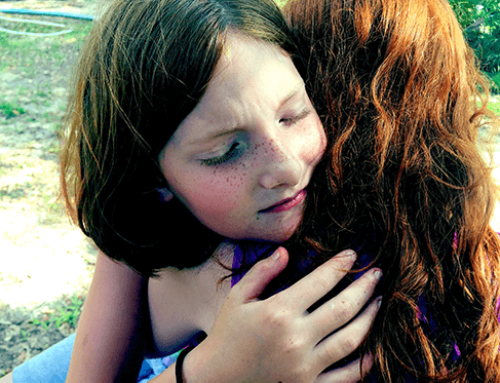 Unless you have studied European Renaissance Literature, you may not know the name of John Donne. John Donne was born into a Catholic family in England in 1572. That may not seem significant to you, but due to laws previously passed by Queen Elizabeth I, anyone not faithfully attending the Church of England in those days was subject to fines, confiscation of property or imprisonment.
Unless you have studied European Renaissance Literature, you may not know the name of John Donne. John Donne was born into a Catholic family in England in 1572. That may not seem significant to you, but due to laws previously passed by Queen Elizabeth I, anyone not faithfully attending the Church of England in those days was subject to fines, confiscation of property or imprisonment.
In 1601, John Donne secretly married Anne More, grand-niece of Sir Thomas More, author of Utopia (1516). They married secretly because both Anne’s father, George More, a politician in the House of Commons, and Sir Thomas Egerton, Anne’s uncle and a high official of the crown, disapproved of the marriage. When discovered, Donne was thrown into Fleet prison along with the Anglican priest who married them and the man who served as witness. He was only imprisoned for a brief time, however, because the marriage was proven valid shortly thereafter.
Donne worked as a lawyer and in 1602 was elected as a Member of Parliament. During this time, Donne began to write poetry for wealthy friends or patrons, including two strongly worded anti-Catholic pieces for Anglican Bishop Thomas Morton. In 1615, Donne yielded to the urging of King James I and was ordained as an Anglican priest.
Having suffered the deaths of three of his ten children before they reached age 10, and the death of his wife following a stillbirth in 1617, Donne himself suffered a nearly fatal illness in 1623. The following year, during his convalescence, Donne wrote a series of poems and meditations on health, pain and sickness published under the title Devotions upon Emergent Occasions.
At least one phrase from a short meditation in this work has become a catch-phrase in Western culture, although few remember the man who first penned it. Do you know what it is?
Here is the complete selection in modern English:
No man is an island entire of itself; every man
is a piece of the continent, a part of the main;
if a clod be washed away by the sea, Europe
is the less, as well as if a promontory were, as
well as any manner of thy friends or of thine
own were; any man’s death diminishes me,
because I am involved in mankind.
And therefore never send to know for whom
the bell tolls; it tolls for thee.
[John Donne, English poet and cleric in the Church of England, 1624]
No man is an island, he wrote. No man is complete in himself alone.
The loss of a single clod of earth diminishes the entire continent as surely as if a great promontory were to fall off into the sea.
Likewise, the loss of any human being diminishes you or me as surely as if it were the death of a dear friend, because the loss of one diminishes all of mankind. The thought causes me to stop and wonder what the loss of one eternal soul means to God the Father.
In Donne’s day, church bells would ring to announce a death in the community. And so, it was common for people, when they heard the sound, to make inquiry to know who died. But in Donne’s words,
any man’s death diminishes me,
because I am involved in mankind.
And therefore never send to know for whom
the bell tolls; it tolls for thee.
Donne recognized that every life is intimately intertwined with those around him. To whatever extent we may consider the concerns of others to be separated from us and inconsequential to our own interests, however much we may consider that our lives are our own to do with as we please, regardless of whether we may believe that our choices are no one’s business but our own, the truth is otherwise.
The truth is, we exist in community. We are made in the image of God and the nature of God is such that He, Himself, does nothing alone. God lives and works eternally within the community of the Trinity. And so, humanity was created to exist in community with others and even, through Christ, to participate in the community of the Father, Son and Holy Spirit.
Therefore, Paul writes:
There is one body and one Spirit, just as also you were called in one hope of your calling; one Lord, one faith, one baptism, one God and Father of all who is over all and through all and in all. (Eph. 4:4-6)
Relationship is at the heart of the Trinity and relationship is at the heart of Christianity. I believe we have come to recognize this truth to some extent. For the most part, we understand that our relationship with Jesus Christ must be at the center of our faith. And we understand that our relationship with God brings us into relationship with those we call our brothers and sisters in Christ.
But I wonder if we understand that God interacts with us in community as often or possibly even more often than as individuals.
One Sunday evening a few years ago, my adult Bible Study group had an encounter with Exodus chapter thirty-four. Allow me to summarize the highlights. The events described in this passage of Scripture occur when Moses had climbed Mount Sinai for the second time to receive the ten commandments. Moses had broken the first set of tablets when he had come down the mountain and found the people worshipping a golden calf. Because of God’s anger, Moses had pleaded with God on behalf of the people and God relented of His anger. So, Moses dared to ask Him, “Show me your glory!” In response, the Lord promised Moses to make His goodness pass before him and Moses eagerly returned to the top of the mountain with two blank stone tablets in hand.
When the Lord passed by in front of Moses, as He had promised to do, God spoke these words,
“The Lord, the Lord God, compassionate and gracious, slow to anger, and abounding in lovingkindness and truth; who keeps lovingkindness for thousands, who forgives iniquity, transgression and sin; yet He will by no means leave the guilty unpunished, visiting the iniquity of fathers on the children and on the grandchildren to the third and fourth generations.” (Exod. 34:6-7)
When first we discussed this passage on that Sunday night, we got rather stuck on the part in which God promises to visit the iniquity of fathers on the children and grandchildren. In our minds, it just didn’t seem to fit with the more familiar and comfortable proclamation of God’s compassion, grace, patience and lovingkindness. Long story short, we came to a rather unsatisfactory conclusion which God later made clear to me He was not happy about. So, the following week our study group revisited the same passage.
Without re-iterating the entire conversation, let me share with you a few points from this passage that I believe are important to understand.
- First, notice that the Lord uses three different Hebrew terms for sin. He says He forgives iniquity, transgression and sin. We tend to use these terms interchangeably and they all refer to sin, but in the Hebrew, they have slightly different meanings. The first one, iniquity or awon, refers to the guilt of sin and therefore the punishment deserved. The second, transgression or pasha, describes the rebellious attitude and breach of trust created by sin. The third word, sin or chatta’ah, refers to the sinful act itself.
God wants us to understand that when He forgives, He forgives completely. He not only forgives our sinful action, but He exonerates us from the punishment and heals our broken relationship with Him.
- The second point we need to understand is that no man is an island. God deals with us not only as individuals, but also in community and especially as families. There are two points God makes that show how He does this.
-
- First, it says “He keeps lovingkindness for thousands.” In Hebrew, the same word is used for thousand and for a thousandth, so another translation of this passage might read, “He keeps lovingkindness for the thousandth.” In Deuteronomy, when Moses reminds the Israelites of this truth, he adds the word generation.
Sometimes, when I want insight into a translation of the Hebrew, I look up the Jewish Publication Society (JPS) version, that is, the modern English translation of the Jewish Tanakh (for Christians, the Old Testament.) The Jewish translation of Exodus 34:7 agrees with Deuteronomy 7:9. It reads, “The Lord! the Lord! a God compassionate and gracious, slow to anger, abounding in kindness and faithfulness, extending kindness to the thousandth generation, forgiving iniquity, transgression, and sin; (JPS, emphasis mine).”
What we should understand from this is that God extends His kindness to our families far beyond what we can easily imagine!
-
- The next part of this passage is the part we tend to have trouble with. The Jewish version reads, “He does not remit all punishment, but visits the iniquity of parents upon children and children’s children, upon the third and fourth generation.”
I wonder if you noticed… it does NOT say that God visits the iniquity, transgression and sin upon the children. God does not lead the children into sin, nor does He curse them with rebellious attitudes. Only the iniquity – the guilt or punishment aspect of sin – is carried on to the next generations.
One of the truths about living in community is that the actions of one, whether for good or evil, have consequences that reach into the lives of others. Especially within families.
On the one hand, this is simply a fact of God’s design for community. And it is not an arbitrary design. It is a design that reflects the very Triune nature of God. We impact those around us simply by being present. We learn from each other. We care for and love one another. We enjoy the results of other people’s labors in art, literature, music, invention… someone built the house you live in, made the bed you sleep in, raised the food you eat… Nearly everywhere we turn, our lives are touched by others and our lives leave an impact on those around us.
Why then, should we be surprised that God allows our sin to impact others and especially our families?
If you have studied much of the Old Testament, you will have discovered that God’s purpose in punishment is to bring people to repentance. If you haven’t you noticed, sometimes it simply takes dire circumstances for people to wake up and recognize their need.
I believe one way God allows the iniquity of parents to affect the lives of their offspring is through the natural consequences of sinful actions like: uncontrolled anger, selfishness, addictions, laziness, carelessness. Parents who are struggling with sin can have a strong negative impact on family life. Children can be emotionally and spiritually damaged by a parent’s sin. And wounded children often bring emotional and spiritual baggage into their own families with their own children and grandchildren.
Another effect of a parent’s iniquity is called generational sin. We don’t know exactly how generational sin works, but it is commonly recognized that children frequently have the same weaknesses or tendencies when it comes to temptation and sin as what their parents have. Certainly, some patterns are learned. Some factors are genetic. But some factors simply may be inherited spiritually in ways we don’t understand.
When it comes to children experiencing the iniquity of the fathers, these things are certain:
- Children may experience temporal consequences due to a parent or grandparent’s sin, but they do not experience eternal consequences for them. Scripture is very clear that eternal salvation or damnation depends only on that individual person’s choices, not on the sins of parents or grandparents (see Ezekiel 18).
- A person can be set free from generational sin just as surely as from personal sin through Jesus Christ.
If you don’t remember anything else from this passage, remember this:
In His compassion and mercy, God limits the reach of our sin to at most the third and fourth generation but He allows lovingkindness to reach to a thousand generations!
God deals with us in community as families, and also as churches, as cities and as nations.
If you are a parent that struggles with habitual sin, consider your children and grandchildren and repent. The power to overcome temptation is yours in Jesus Christ. The blood of Christ can break the power of sin and His grace can bring healing to you and to your family.
Pastor Cindy
[adapted from a sermon originally preached 3/3/19]





I remember those Sunday nights & navigating those passages. I will never again be confused on the meaning here.
A lot is said in this reading!
It’s so sad, though, how “sins” within families can be so destructive from one generation to the next, and the children are the victims who become the sinners in their adulthood, i.e. alcoholics, child beaters/molesters, etc. But, God can help break the chain on an individual level within any of those generations. Amen!